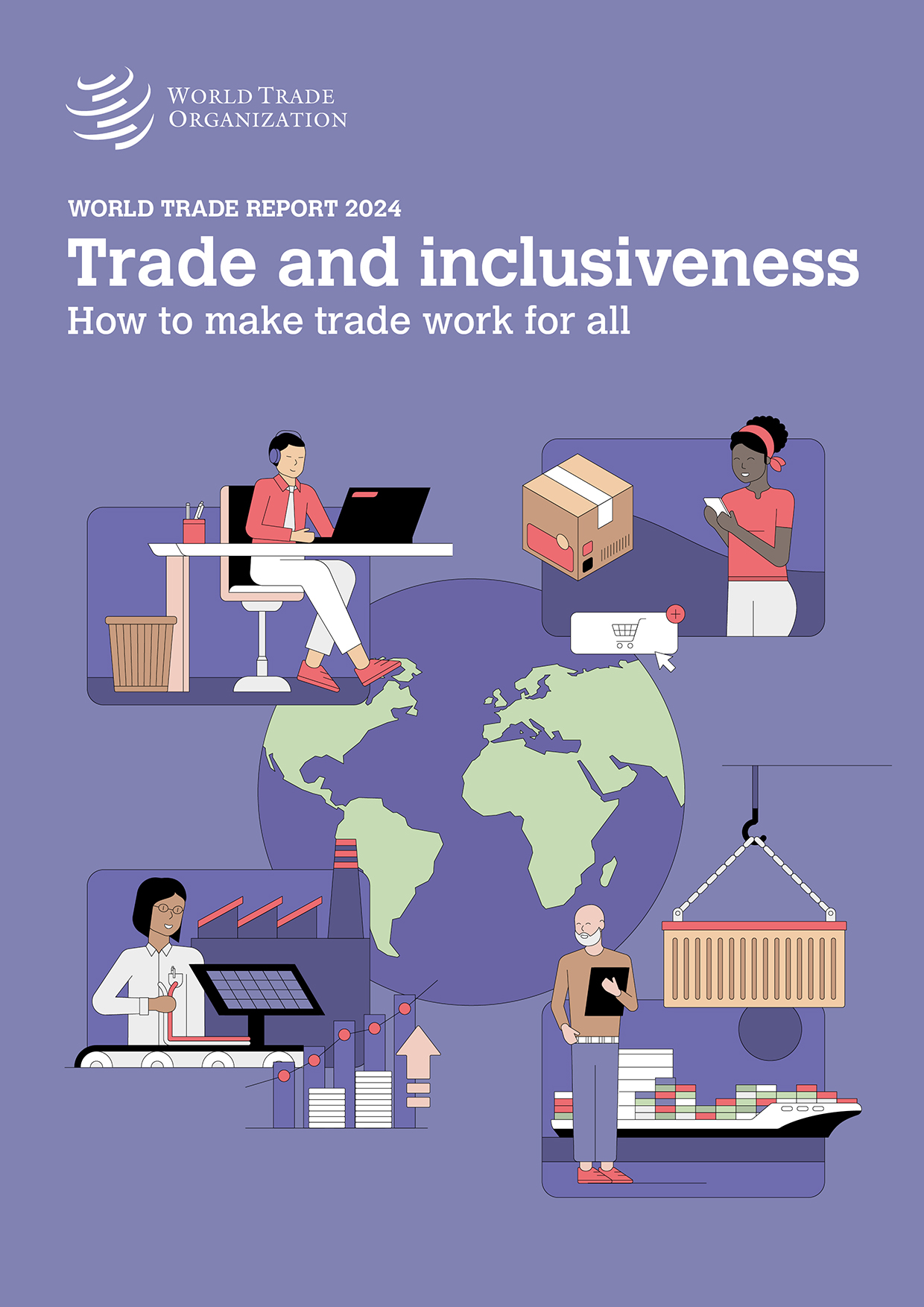World Trade Report 2024

Abstracto
Over the past 30 years, the world has witnessed a period of unprecedented income convergence, as the wide gap in income levels between economies has narrowed. Economic growth has improved living conditions and prospects for many people around the world. However, not all individuals, regions and economies have benefited equally from the changes brought about by more open trade. The World Trade Report 2024 explores the complex interlinkages between trade and inclusiveness across and within economies. Openness to international trade can drive economic growth, but many low- and middle-income economies struggle to diversify or to integrate into world trade. Although trade supports numerous jobs and provides access to affordable goods and services, some individuals can face challenges in adapting to new economic conditions following trade openness. However, trade protectionism neither protects the overall economy, nor promotes inclusiveness within economies. Diversifying global value chains, reducing trade costs through digitalization, and transitioning to a low-carbon economy can create new opportunities for low- and middle-income economies. Addressing remaining barriers to trade and investment, facilitating the implementation of existing WTO agreements, and ensuring that the WTO is fit for new challenges are crucial to support inclusiveness across and within economies. Furthermore, trade policies need to be complemented by domestic measures, such as labour, education and competition policies, so that the gains from trade can flow to workers and consumers, and so that those individuals can move to benefit from those gains. WTO cooperation with other international organizations can magnify combined action on inclusiveness across and within economies.



